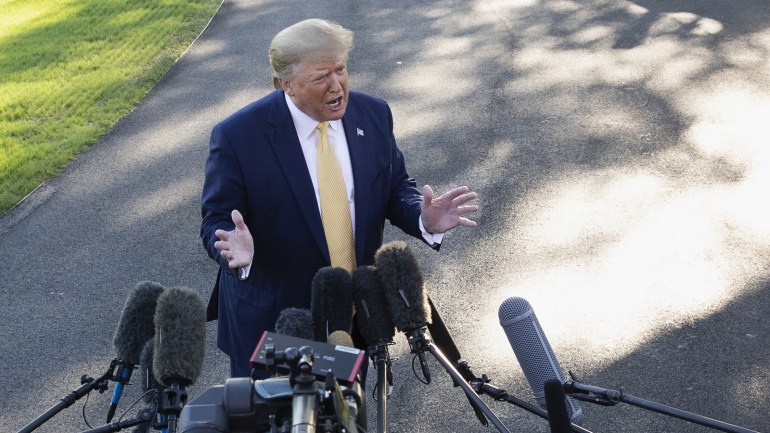Psychiatrist Mary Trump, the niece of President Donald Trump, said that psychiatrists in America know what her uncle is suffering from, and called on the American Psychiatric Association to ease the restrictions it imposes on its members, and to allow them to publish their diagnosis of the president's psychological condition.
Mary, author of "Too Much and Never Enough ... How did my family create the most dangerous man in the world?"
In an article
in the Washington Post, the American Psychiatric Association has observed that since the 1960s, the American Psychiatric Association has adhered to a rule prohibiting the diagnosis of public figures, arguing that it is unethical for a psychiatrist to give a professional opinion unless he has conducted an examination and obtained the appropriate authorization to publish his opinion.
She added that in March 2017 - shortly after the inauguration of her uncle Trump - the American Psychiatric Association no longer emphasized that rule only, but also expanded it "excessively", according to its view, as it is no longer possible for a psychiatrist in the United States to provide an opinion. A professional of any kind about a public figure regardless of the extent of the evidence relying on, even if he believes that this personality poses a threat to the citizens of the state.
It's ridiculous
She described this as "absurd" and has dire consequences for the safety of 300 million American people, adding that while psychiatric diagnosis is a technical process, it is entirely possible to draw conclusions based on the observed behavior, and that it is possible to unequivocally declare that a person has antisocial personality disorder. Such as deliberately putting other people in harm's way for no apparent reason, and such as abandoning America's allies and inflicting harm on them, and the danger of having someone incapable of human sympathy in the Oval Office.
And she went on to say that it is not an exaggeration to say that Donald has exhibited a pathological, alarming behavior, as proved recently by his cruel disregard for his health and the health of those around him when he left Walter Reed Hospital while he was still getting rid of the Corona virus, or when he held rallies and encouraged thousands of people to attend without Wearing masks or social distancing to support his ego.
Mary Trump: It is not an exaggeration to say that Donald has shown satisfactory behavior that causes concern (Al Jazeera)
The importance of mental health for leaders
She added that the American public is not sufficiently educated about mental health, and serious and sustained explanation, backed by professional strength, will be required to help understand why emotional and psychological stability is important to our "leaders."
She wondered why legal experts were allowed to express their views daily on Donald's unconstitutional or non-standard behavior, as well as allowing medical experts - since his diagnosis of "Covid 19" virus - to predict the course of his illness and the potentially dangerous side effects that he may suffer as a result of the experimental treatments he received, and marginalize Mental health experts only.
And she emphasized that professional opinions about the president's mental health have abounded, but she is prohibited from publishing. For example, she says that Rick Wilson - who is one of the founders of the Lincoln Project - described the president’s behavior as “a combination of waking hallucinations, involuntary verbal hallucinations, and lies that exceed even standards. Superstitious, talk without thinking. "
My uncle is sick
She said that if we look at the past three and a half years, we find that the president has lied publicly more than 20 thousand times, recklessly violating the advice of experts who could have helped contain the epidemic and protect the economy, and exposed citizens to danger by attacking them on Twitter because they criticized him, and proved that he is unable Take responsibility, change course, or show empathy.
It quoted Courtney Fingar, a writer for the Financial Times, as saying that the public notices all these symptoms in the president without getting an explanation by psychologists, and what the American Psychiatric Association aimed to reduce speculation was the cause of the spread of speculation, not professional opinions.
Mary argued that it is possible to make a professional diagnosis of the president's condition even if he does not agree to personally submit to it, because the required information is abundant on the videos available from him for decades more than what could be available in regular clinic interviews.

